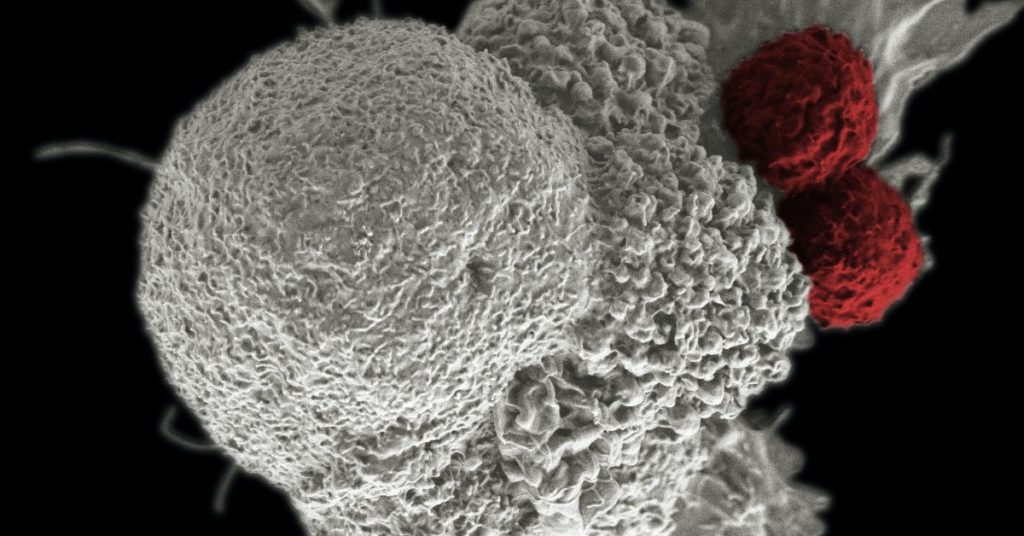Can MRI Scans or CT Scans Detect Cancer?
An MRI scan and a CT scan can both detect cancer, but that’s not the whole story. Cancer develops at the cellular level, so finding and diagnosing the disease takes medical detective work—something our highly trained staff contributes to every day at Touchstone Medical Imaging.
Typically, doctors arrive at a cancer diagnosis by piecing together a variety of clues, including medical history, physical exam, biopsy and laboratory tests. Imaging test results are another essential piece of the puzzle.
Detecting cancers isn’t the only role that medical imaging plays in cancer care. In addition to finding tumors, imaging helps doctors:
- Determine whether cancer has spread from its source to other parts of the body
- Distinguish between cancerous and noncancerous masses
- Monitor the progress of cancer treatments and gauge how well they’re working
- Plan treatments
- Stage cancer
Touchstone Medical Imaging understands the essential role that imaging plays in the cancer journey. The results of imaging tests often provide the first indication that cancer may be present, offer some peace of mind by helping doctors form a treatment plan or inspire hope that treatment is working. At Touchstone Medical Imaging, we offer the most innovative MRI and CT technology, and our radiologists have subspecialty training that allows them to provide your referring doctor with precise and reliable scans that inform cancer diagnosis and treatment plans.
The role of MRI and CT in cancer detection
A CT scan uses the power of X-ray radiation to make images of the patient’s internal structures, including organs, bones and soft tissues, like muscles and ligaments. The scanner creates cross-sectional images, called slices, which are combined by a computer to create a 3D model that allows for a 360-degree view of the structure. Tumors are often detectable on a CT scan.
An MRI scan also captures images of the organs, bones and soft tissues, but it relies on magnetic fields and radiofrequency waves rather than radiation. The images of an MRI scan, which often provide more detail than those from a CT scan, make it possible for doctors to determine if cancer exists or has spread.
Cancer types detected by MRI and CT scans
Both MRIs and CTs can find numerous types of cancer, including:
- Bladder cancer
- Brain cancer
- Colorectal cancer
- Esophageal cancer
- Liver cancer
- Myeloma
- Non-Hodgkin lymphoma
- Pancreatic cancer
- Prostate cancer
MRIs are also helpful in detecting breast cancer and spinal cord cancer, as well as myeloma. CTs can be used to find cancer in the kidneys, lungs and ovaries.
It is also possible that an MRI or CT scan can detect cancer when doctors aren’t looking for it. Doctors may order an MRI or a CT to prepare for a surgery or look for the cause of pain or other symptoms affecting specific areas of the body, and potentially cancerous tumors may show in the images from these exams. Tests in which an MRI or CT could reveal cancer incidentally include scans of the abdomen and cervical or lumbar spine.
More cancer-detecting modalities
Medical imaging encompasses many more modalities beyond MRI scans and CT scans that can help detect or be used in the treatment of it, including:
- Mammography. Mammograms are a type of X-ray. Radiologists use screening mammograms to detect potentially cancerous tumors. Diagnostic mammograms can yield more information about abnormalities or areas of concern revealed by screening mammograms.
- PET/CT scan. A PET/CT scan uses a radioactive tracer to show organs and tissues at work. This functional view allows doctors to see if cancer has spread or judge how tumors are responding to treatment.
- Ultrasound. An ultrasound creates images of blood vessels, tissues and organs using high-energy sound waves. Ultrasound can distinguish a fluid-filled cyst from a tumor, but it can’t determine if a tumor is cancerous.
- X-ray. X-rays can show tumors in certain organs, such as the lungs. Where they excel, however, is showing bones—including bones damaged by cancer.
If you’re facing a potential cancer diagnosis or are going through treatment and need an imaging exam, Touchstone Medical Imaging is here to provide clarity. Our advanced imaging technologies produce precise, reliable results that you and your doctor can trust. Find a location near you.

